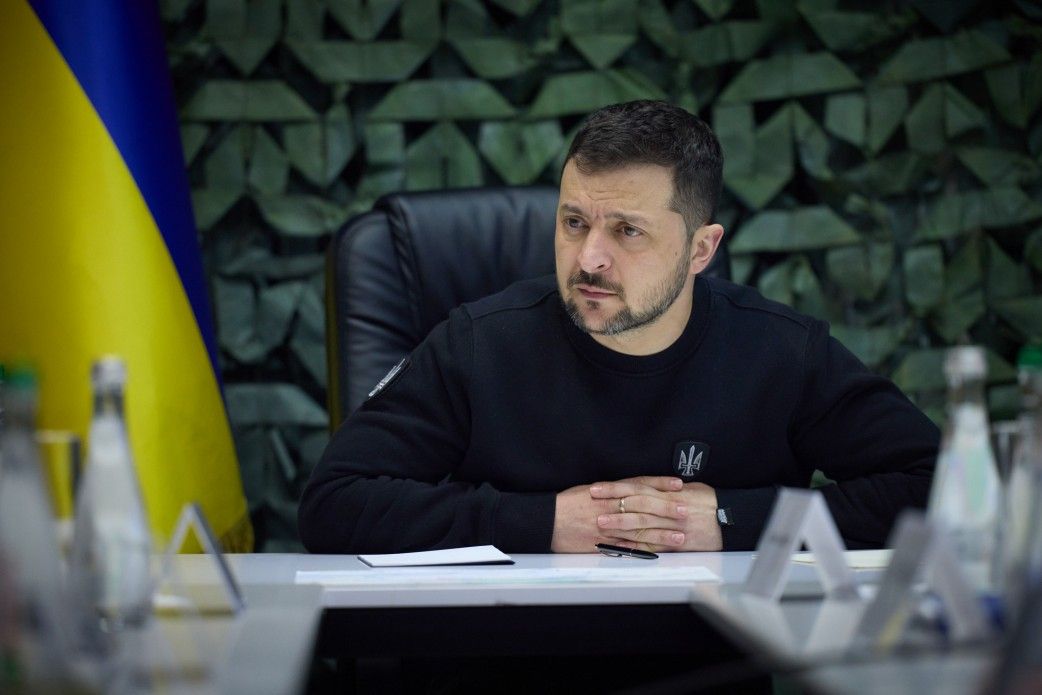At the outbreak of the war, my contention, following analysis I read on the World Socialist Website (a news network of Trotskyist journalists, for communist readers like myself), was that the fundamental cause of the war was Russia’s fear of the expansion of NATO.
I liked this because it is a very Thucydidean explanation for the war. Thucydides, an Athenian, wrote a history of the Peloponnesian War between the Delian and Peloponnesian Leagues in the 5th century BCE. The two parties to the conflict were nominally equal confederations each made up of a large number of Greek city-states; in reality and in practice however, the Delian League was a mechanism for Athenian imperialism and the Peloponnesian League for Spartan imperialism. The Leagues were, in reality, completely dominated by the two chief city-states and all the other members were ruled as powerless vassals.
The other important piece of context here is that the History of the Peloponnesian War was not actually a history. We wouldn’t call it that today. It was a live-action commentary; it was journalism; it was wartime correspondence. But history it was not, because Thucydides began writing it whilst the war was still being fought, and he died before the war ended. The book actually ends abruptly, practically mid-sentence, about 8 years before the war actually ended chronologically – because that’s when he died. So it’s an account of the war written in real-time, not a history written decades after the fact.
At 1.23.6, Thucydides wrote:
τὴν μὲν γὰρ ἀληθεστάτην πρόφασιν, ἀφανεστάτην δὲ λόγῳ, τοὺς Ἀθηναίους ἡγοῦμαι μεγάλους γιγνομένους καὶ φόβον παρέχοντας τοῖς Λακεδαιμονίοις ἀναγκάσαι ἐς τὸ πολεμεῖν.
I translate: “I believe the truest motive, and [the] most unseen in discourse, was [the] greatness of Athens causing fear to the Lacedaemonians, to force them to war.”
A more elegant translation, one that perhaps expresses the idea in a form that is easier to comprehend for the English reader, would be something along the lines of “I believe the truest, and most unsaid, cause of the war was the Spartan fear of the growth of Athenian power.”
This is fundamentally the same idea expressed in relation to the war in Ukraine: the truest cause of the war is the Russian fear of the growth of NATO’s power.
I wonder if the Athenians of the day, or the people of the city-states mercilessly ruled by Athens under the fictitious equality of the Delian League, called Thucydides things that people today have called me for saying the same thing about the Ukraine war. Did they call Thucydides a useful idiot for the Spartans? Did they accuse him of swallowing Spartan propaganda without exercising any critical thinking, and just repeating it as though it was true? Did they accuse him of being a paid agent for the Spartans?
I can’t prove with certainty that such accusations were never levelled at Thucydides, but the weight of evidence is extraordinarily supportive that he was never thought of in those ways. All subsequent Greek writers esteemed him very highly and considered his work to be a masterpiece.
I mentioned that Thucydides died before the war ended and his history ends abruptly, mid-sentence. Well, the project was taken over by another Athenian a few decades later. Xenophon, an Athenian, took it upon himself to write the final chapters of the history of the Peloponnesian War, in a separate book of his own that he called Hellenica. Xenophon was at least a teenager or possibly a young man by the time Thucydides died – they were contemporaries. So if anybody in Athens had been going around slandering Thucydides, it would have reached the ears of the young Xenophon, for sure. And yet he makes no mention of it, and nor did he challenge Thucydides’ core assumptions about the war. Other Athenian contemporaries like Plato also make no criticism of Thucydides.
This doesn’t prove that there was nobody who took issue with Thucydides’ analysis of the war, but it does show that many of the leading intellectuals in the years immediately after his death certainly did not disagree with his statement that the war was caused by the Spartan fear of the growth of Athenian power.
If Thucydides can identify the actions of his own state as a provocation to another state that led to war between the two, then I can say the same thing about the Ukrainian war and nobody of any intellect can then call me a useful idiot for Putin.
I think the issue is (as always) that most people are absolute morons who lack the ounce of intelligence required to have a nuanced and proper understanding of these things. Let’s read Thucydides’ statement again. Does he say, “we (Athens) are the bad guys and it’s all our fault”? Does he say, “Sparta are the good guys and their every action is fully justified and we deserved everything that we got”? No.
Let’s also read my statement and the journalists on the World Socialist Website again. Do we say “Ukraine and the west are the bad guys and it’s all our fault?” Do we say “Putin is the good guy and his every action is fully justified and the Ukrainians got what was coming to them?” No.
Nor do those conclusions necessarily follow from the initial statements proposed by Thucydides, by World Socialist Website, or by myself. There is no relation between a detached, dispassionate, emotionless, scientific analysis of the cause of a certain event in the world, and the emotional, argumentative, adversarial, legal judgement of who is to blame for that event happening. Who is responsible, who must make restitution, who is the bad guy and who is the good guy – these questions do not belong in a detached, scientific analysis of cause and effect; rather they belong to deciding after the war is over who has to cop the blame for it and who has to pay reparations and surrender territory.
But people are unable to draw that distinction. In their pea-sized brains, the scientific concept of cause and effect is the exact same thing as the emotional concepts of blame, justice, crime and punishment.
The nuance that people are not intelligent enough to see is set out by another Greek writer, Polybius of Megalopolis, whom I will fight to the death anybody who says that he is not the greatest historian by far in all of literature all over the world. Nobody fukks with Polybius. Few are even fit to lace his shoes, never mind compete against him as though they were an equal. The lyrics of Lupe Fiasco in Superstar are apt: “What have you brung? You? Did you improve on the design, did you do something new?” The answer to those questions from nearly all historians to have taken up the pen after Polybius is – “no, no, no, and no.” Nobody improved on the design and did something new and took the discipline up into new places like he did, since he did. Nobody achieved or affected a great leap forward in how history is written to the same degree that Polybius did. The man was a genius without peer or parallel. If he was around today, his ideas on history as an academic, intellectual pursuit would still be cutting edge. We’ve had the best part of 2300 years to figure out ways to do history better than he did, and we still haven’t done it.
At 3.6.6, Polybius gives a list of examples of previous wars and lays out the differences between their causes and their beginnings. He writes (and this time because I’m feeling lazy, and because it is a really long section, I’ll just quote the Paton/Habicht/F.W. Walbank translation instead of doing my own):
These are pronouncements of men who are unable to see the great and essential distinction between a beginning and a cause or purpose, these being the first origin of all, and the beginning coming last. By the beginning of something I mean the first attempt to execute and put in action plans on which we have decided, by its causes what is most initiatory in our judgements and opinions, that is to say our notions of things, our state of mind, our reasoning about these, and everything through which we reach decisions and projects.
He continues at 3.7.4:
In speaking at such length on this matter, my object has not been to censure previous writers, but to rectify the ideas of students. For of what use to the sick is a physician who is ignorant of the causes of certain conditions of the body? And of what use is a statesman who cannot reckon how, why, and whence each event has originated? The former will scarcely be likely to recommend proper treatment for the body and it will be impossible for the latter without such knowledge to deal properly with circumstances. Nothing, therefore, should be more carefully guarded against and more diligently sought out than the first causes of each event, since matters of the greatest moment often originate from trifles, and it is the initial impulses and conceptions in every matter which are most easily remedied.
The question of “beginning” as Polybius puts it is where all the emotional stuff about blame and who is the bad guy and who is the good guy comes into it. It’s where the pretexts for war are made by the parties to it. It’s where the propaganda comes out. The example Polybius gives at 3.6.13 (not quoted above) is the Macedonian invasion of Asia, where the Macedonian king Philip gave the propaganda and the pretext that the cause for the war was that “it was his urgent duty to take vengeance on the Persians for their injurious treatment of the Greeks.” But the causes for it were totally different and not at all connected to Philip’s posturing about the war that he was the good guy and his enemy was the bad guy.
I’m not about “beginnings,” in the Polybian sense. I don’t give a shyt about that. I am an intellectual, a scientist. I deal in facts, not in emotions. I don’t care who the bad guy is and who the good guy is. It can be anybody, or more likely, it is usually both parties. Whatever the case, who the bad guy and who the good guy is has nothing at all to do with why something is actually happening – in the case of the war in Ukraine, it happened because of the Russian fear of the growth of NATO’s power. And as Polybius made clear, if you are the one in charge and you are the one making decisions, you had better put all those emotions aside and seek the first causes for each event like a scientist.
I do not expect or anticipate that there will be intelligent responses to this. I have learned over the years that I am too superior to most people to waste my time trying to exchange ideas with them - it is better instead to say my piece, drop the mic, and go do something more productive.

kyivindependent.com
 Wtf
Wtf





